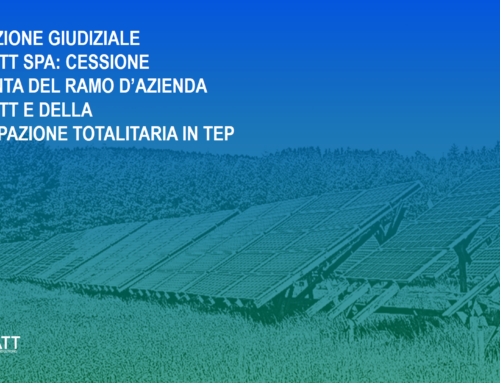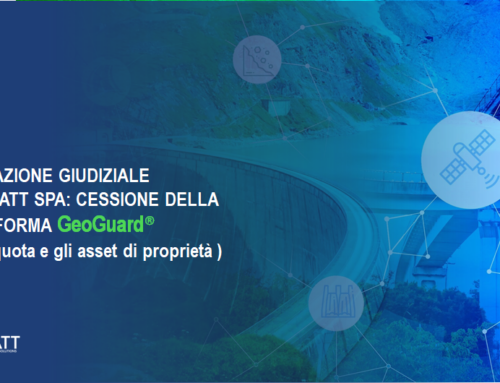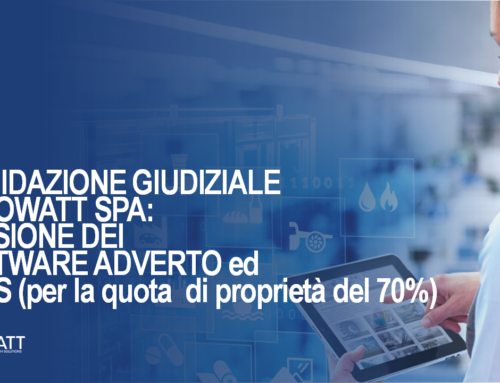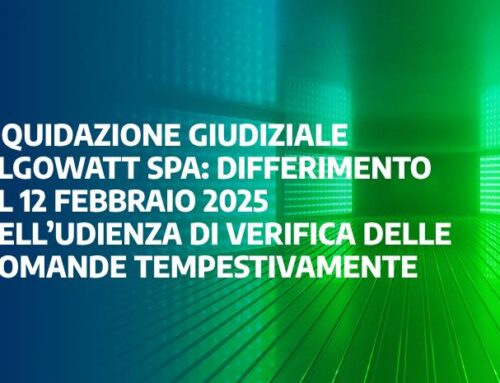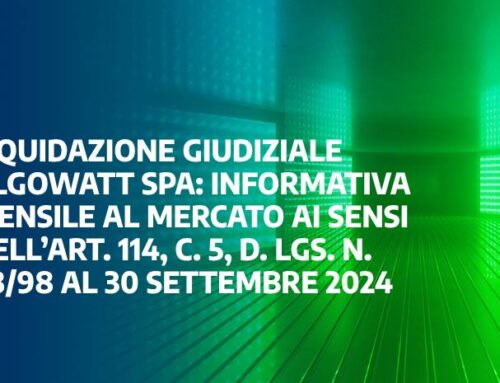- Wegreenit as General Contractor, algoWatt as digital technology provider and TerniEnergia Progetti as EPC and O&M supplier are involved in the agreement
algoWatt, GreenTech Company listed on the Euronext Milan market of Borsa Italiana, its subsidiary TerniEnergia Progetti, a system integrator and O&M provider in the renewable energy sector, and Wegreenit, General Contractor in energy efficiency operations, active at 360° in the field of technical, commercial and financial services in the residential, industrial and hotel sectors, have signed a strategic partnership, with the stewardship* formula, for the valorisation of the resources and skills of each company in the Renewable Energy Community (REC) sector, through the development and achievement of a variety of projects. The three-year stewardship, common goal is to assume national leadership in the implementation of shared plants for the production and self-consumption of energy from renewable sources, will see the companies committed as follows
- Wegreenit, which thanks to the agreement enriches its bouquet of skills and services with a new technological and innovative component, will operate as General Contractor, following – by way of example – the preliminary feasibility study and the economic and financial plan, the recruitment of participants and the signing of contracts with clients, the financial arrangement and the supervision of the various implementation phases;
- algoWatt will act in the role of digital technology provider, especially through the activities of its highly specialised technicians and the use of its proprietary ER-Libra CE suite (dedicated to CER management);
- TerniEnergia Progetti will operate as a sub-contractor, with its own know-how in the field of design and installation of renewable energy systems with related support solutions (storage, EV charge, digital technologies for plant management and CER administration, etc.).
Fabrizio Candoni, President and CEO of Wegreenit, emphasised the opportunity to quickly establish an innovative formula based on collaboration between different companies and consumer groups. “With this partnership we will offer large consumer units, companies and public administrations an integrated solution for energy communities. We will be the driver of innovative solutions that combine advanced digital technology with expertise in the design and installation of renewable energy systems, and experience in the technical, commercial and financial services required to realise sustainable and efficient energy systems ”.
Stefano Neri, President and CEO of algoWatt, expressed his enthusiasm for this partnership, emphasising that “the alliance with Wegreenit represents a unique opportunity to expand our offer and to become together leading operators in the promising sector of Renewable Energy Communities. algoWatt and TerniEnergia Progetti will have in Wegreenit the ideal ally to develop a new business model able to maximise the opportunities offered by the sector’s regulations, ensuring environmental, social and economic benefits ”.
RECs are becoming increasingly popular as a sustainable solution for the production and consumption of renewable energy. Energy communities are groups of consumers who work together to produce and consume clean energy, reducing their dependence on traditional energy sources and centralised electricity grids. A study by the Politecnico di Milano (Electricity Market Report) estimates that by 2025, there will be at least 40,000 RECs in Italy, involving around 1.2 million households, 200,000 offices and 10,000 SMEs. Renewable Energy Communities are also attracting the attention of investors and financial institutions, who see in this sector a great opportunity to invest in sustainable solutions. Investors can support the growth of energy communities through long-term financing, thus creating a supportive ecosystem for the development of this new opportunity.


**A particular partnership model that consists of working together with a common vision among the actors involved and to maintain this vision it is necessary to: (i) Involve the partners early on in the project; (ii) Ensure that the partners are clear about the content, timing, strategy and overall design of the intervention; (iii) Consider (in the sense of assessing the appropriateness and sustainability) the partners’ views and input; (iv) Provide the partners with the tools they need (training, information, contacts) and the information they feel they need; (v) Build trust.


